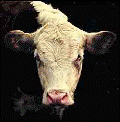Animal Science, Department of

Department of Animal Science: Dissertations, Theses, and Student Research
First Advisor
Sheila E. Scheideler
Committee Members
Mary M. Beck, Janos Zempleni, Kathy Hanford, Judy A. Driskell
Date of this Version
Fall 11-30-2010
Document Type
Dissertation
Citation
A dissertation presented to the faculty of the Graduate College at the University of Nebraska in partial fulfillment of requirements for the degree of Doctor of Philosophy
Major: Animal Science
Under the supervision of Professor Sheila E. Scheideler
Lincoln, Nebraska, November 2010
Abstract
In trial 1, a corn-soy basal diet was formulated with three levels of supplemental choline (0, 500 and 1000 ppm) and three levels of supplemental folic acid (0, 2 and 4 ppm) in a 3 x 3 factorial arrangement. Folic acid at 2 ppm increased egg production (p ≤ 0.04). Egg wt was higher at 500 ppm of choline (p ≤ 0.06) and 0 ppm (p ≤ 0.01) of folic acid supplementation. There were choline by folic acid interaction effects on feed intake (p ≤ 0.001), albumen wt (p ≤ 0.005) and yolk wt (p ≤ 0.03). Plasma folate and egg folate showed an increase (p ≤ 0.0001) with added levels of dietary folic acid. Phosphatidylcholine (PC) concentration showed a trend to increase with higher levels of choline and folic acid supplementation. In trial 2, a corn-soy basal diet was formulated with 2 levels supplemental choline (500 and 1000 ppm), 2 levels supplemental folic acid (2 and 4 ppm), and 2 levels supplemental vitamin B12 (0.01 and 0.02 ppm) in a 2 x 2 x 2 factorial arrangement along with a control (no supplementation) group. Yolk wt showed choline x vitamin B12 interaction (p ≤ 0.001). Phosphatidylcholine (PC) showed an increase (p ≤ 0.0001) with added levels of choline, folic acid or vitamin B12. Results indicate that choline, folic acid and vitamin B12 can be supplemented in a synergistic combination to increase egg yolk phosphatidylcholine content by 20 to 25 % compared to no supplementation.
Advisor: Sheila E. Scheideler


Comments
Copyright 2010, Pradeep Krishnan Rajalekshmy. Used by permission